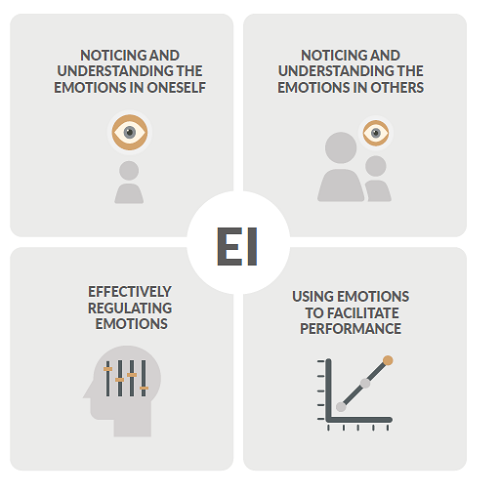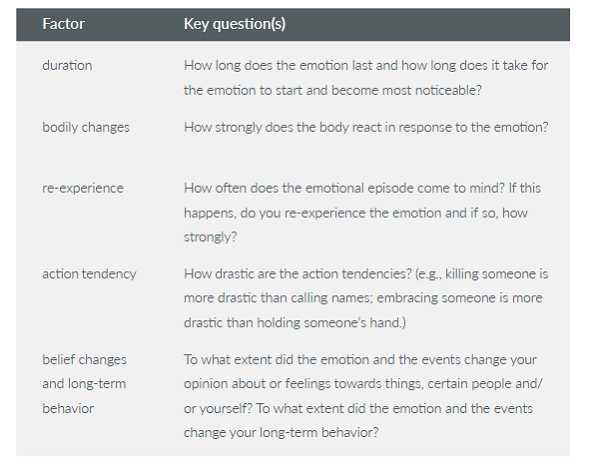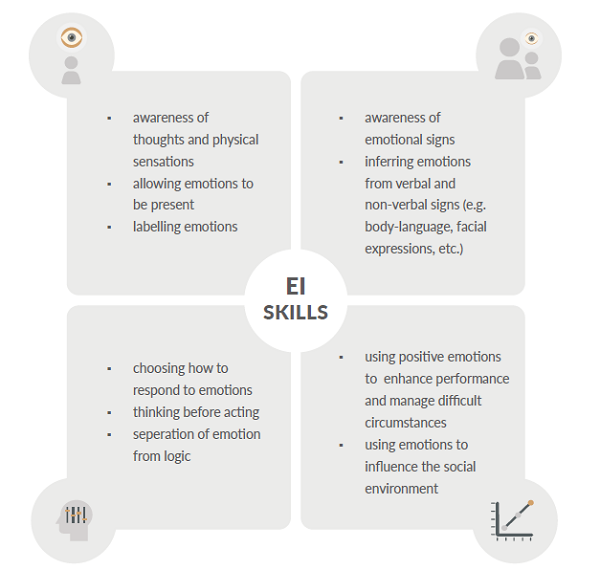Emotional Intelligence (EI or EQ)
Introduction
Emotional Intelligence (EI) or Emotional Quotient (EQ)
"...refers to the ability to understand and manage emotional encounters. Individuals who score highly on emotional intelligence tend to be better able to handle everyday stress, foster a greater number of meaningful close relationships, and be more socially competent in general..."
Zeidner et al as quoted by Seph Fontane Pennock et al, 2019
Furthermore, they are likely to experience higher levels of well-being.
Emotional intelligence is about
- helping you use, rather than be used by, your emotions
- empowering people to develop healthier, more meaningful relationships, boosting their resilience and sense of purpose
- using positive relationship interventions.
(main source: Seph Fontane Pennock, 2024)
Some researchers argue that EI is an elusive concept as
"...EI is associated with greater social competency, definitions in popular media typically include personality attributes linked with social functioning that may not be directly related to skills and abilities in the emotional domain......this differs from the scientific literature inwhich EI is typically defined in terms of mental abilities rather than social competencies..."
Mayer et al as quoted by Seph Fontane Pennock et al, 2019
Furthermore,
"...In an organisational contexts, EI has been used to identify and train skills important in the workplace other than job-related competencies..."
Caruso et al as quoted by Seph Fontane Pennock et al, 2019
The 4 dimensions of EI

(source: Seph Fontane Pennock et al, 2019)
1. Notice and understand your emotion (ability to understand your own deep emotions and express them naturally, ie able to sense and acknowledge your own emotions; this involves emotional awareness that
"...requires an individual to pay attention to the physical sensation, thoughts and action tendencies that accompany the emotion.....Also involves the ability to discern emotional intensity...and duration..."
Seph Fontane Pennock et al, 2019
There are 5 factors that determine the intensity of emotions:
"...i) the duration of the emotion and delay in its onset and peak
ii) the magnitude of perceived bodily changes
iii) the frequency of recollection and re-experience of the emotion
iv) the strength and severity of action tendency
v) the magnitude of belief changes and influence on long-term..."
J. Sonnemans et al as quoted by Seph Fontane Pennock et al, 2019
More details on the 5 factors:

(source: Seph Fontane Pennock et al, 2019)
2. Notice and understand emotions in others (ability to notice and understand other people's emotions; this includes appraising and recognising others' emotions; understanding body language, including facial expressions, is an important, and many of them are universal, ie the same in different cultural groups; however, there can be subtle cultural differences in the way people express their emotions:
"...there are different ways to 'read' other people's emotions, including paying attention to speech (ie vocal inflections, tone of voice, word use) and body movement and facial expressions..."
Seph Fontane Pennock et al, 2019)
3. Effective regulation of emotions in oneself (ability to effectively deal with your own emotions, ie able to prevent your emotions from automatically influencing your behaviour, eg able to manage anger by not saying or doing anything that you may regret later)
4. Using emotions to facilitate performance (the ability to direct emotions towards constructive activities and personal performance, ie encourage yourself to continuously do better and direct your emotions into positive and productive directions)
NB As you may have difficulty identifying and labelling your emotions, there is a need to expand emotional vocabulary as an important step in increasing your awareness, your skills in handling motions and ability to communicate effectively about your emotions, ie you need to be able to effectively communicate the nuances of what you are feeling so that others can understand.
Essential emotional intelligence skills per dimension

(source: Seph Fontane Pennock et al, 2019)
